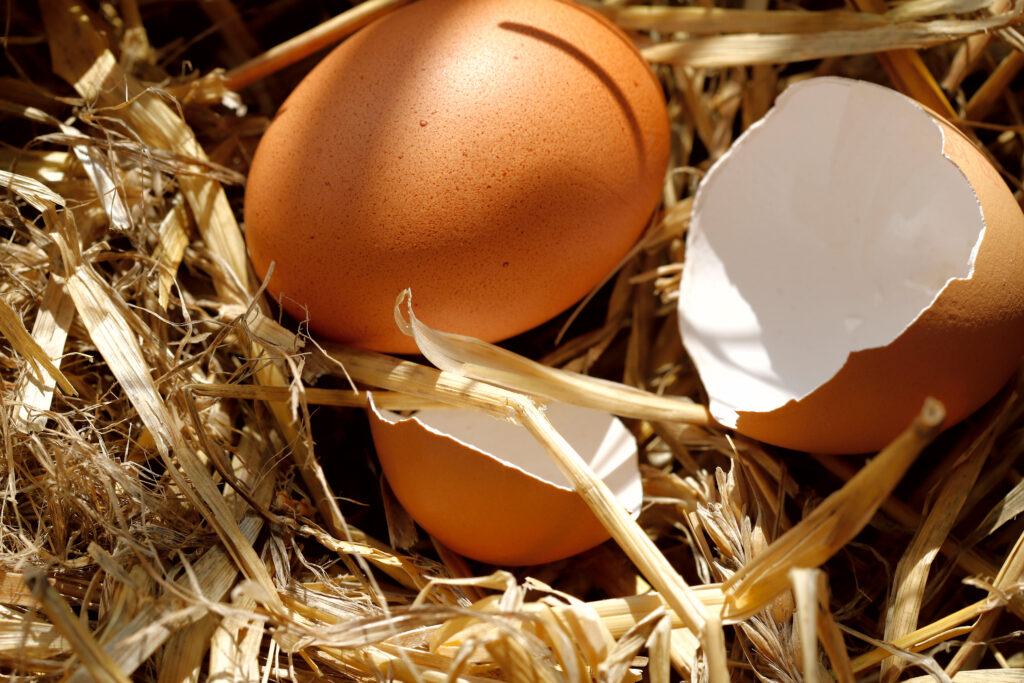“What causes soft shelled eggs? My chooks have produced several eggs recently with really brittle shells. Should I be worried and what can I do to get them back to normal?” Paws N’ All reader Paul asks.
As Paul has discovered, not all egg shells are strong. Sometimes they can be brittle, causing them to break in the nesting box, or from a slight touch as you pick them up.
Occasionally, eggs can be laid with no shell at all, held together simply by the membrane or skin.
Here’s what the experts have to say about what causes soft shelled eggs and what to do about them.
Should you be worried about your chickens’ health?
Anything out of the ordinary is cause to take a closer look at what is going on with your flock. However, there is no need to panic.
It’s good to act quickly, because soft shelled eggs are likely an indicator that something requires your attention.
Left untreated, soft shelled eggs can more easily break inside your hen, causing serious – even fatal – infections.
It’s also important to note that soft shells are different from fairy eggs, and are not necessarily linked.
So what causes soft shelled eggs?
According to chicken consultant Elise McNamara, what causes soft shelled eggs can be a range of factors, including mineral deficiencies, heatwaves or a bug that’s sweeping through the flock.
However, she says that brittle shells or ‘soft’ eggs – where the ‘shell’ is leathery to touch – are most often caused by calcium deficiency. This can be easily rectified – just add more shell grit to your girls’ diet.
ABC chicken expert, Jessamy Miller, suggests it’s better to let chooks help themselves to shell grit rather than mixing it in with food.
“This allows them to access it at the right time for optimal absorption to make the shell,” she says.
“Most hens prefer to peck away at it in the mid-afternoon, ready for the 18-hour shell formation process that occurs overnight.”
Good diet means good egg production
If you’re getting a lot of dodgy eggs, you can attempt to isolate the chicken you think is the culprit and take them to the vet for advice.
According to Poultry Australia, egg production can be impacted by factors such as the level of light during different seasons, hot and cold weather, poor diet and stress.
Egg production can be improved by ensuring that nesting boxes are secure, private and reasonably dark. If nesting boxes are overcrowded hens will often find alternative nests when free ranging to lay their eggs.
A balanced diet of a layer feed and kitchen scraps, plus some shell grit, will help ensure good egg production.











